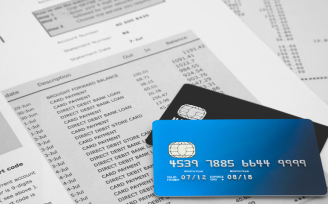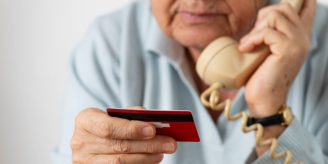Can't pay your credit card? Here's what to do
Are you having trouble paying your credit card bills? Discover practical tips on how to deal with this situation!
Are you facing financial difficulties and feel that can no longer pay the credit card this month? Well, we have some tips to help you. Read on to the end and find out how to solve the problem of not being able to pay the credit card!

What to do when I can no longer pay my credit card?
If you are having difficulty paying your credit card, it is important to act quickly to prevent the situation from becoming even more complicated.
First of all, you should know that this isn’t rocket science. There are some important tips that can help you with the process.
Below, you can check a list of what to do if you are unable to pay your credit card.
- Review your finances: check where your money is going and see where you can cut expenses;
- Create a budget: establish a plan for your monthly finances, prioritizing debt repayment;
- Negotiate with the bank: Talk to your financial institution to renegotiate your debt. It is often possible to arrange a payment plan with lower interest rates. Also, consider consolidating your credit card debt into a loan with lower interest rates;
- Prioritize payments: the minimum payment may seem like a way out, but it accrues more interest, increasing your debt;
- Use your emergency fund: If you have one, now is the time to use it to prevent your debt from growing even further;
- Seek professional help: if the situation is out of control, seek help from a financial advisor or a debt renegotiation service;
- Educate yourself to avoid future debt: learn about financial education to avoid falling into debt again;
- Use the card with caution: If possible, avoid using your credit card until you can balance your finances.
What happens if I can't pay my credit card?
If you are unable to pay your credit card, there are a number of consequences to paying late. The first is that you will accumulate debt due to high interest rates and late fees, which will increase the total amount owed.
Furthermore, be aware that this can affect your credit score, which may drop and make it difficult to obtain new credit, in addition to resulting in credit protection records, such as SPC and Serasa.
Also be aware that the bank may transfer your debt to collection agencies, who will contact you frequently to try to recover the amount.
In more serious cases, there may be legal action, leading to the seizure of assets or blocking of accounts. It is also possible that your card may be blocked or cancelled, limiting your access to credit.
This default not only impacts your access to future credit, but can also generate financial stress and affect your mental health and relationships.
So, to avoid these consequences, it is important to try to renegotiate the debt quickly and seek financial help, if necessary.
Bonus tip: take out invoice insurance
Some banks offer the option of bill insurance, precisely because of unforeseen events such as losing your job or running out of money to pay your card bill.
Generally, this type of insurance helps to cover the installments of the invoice in case of unforeseen events, such as unemployment, illness or accidents, ensuring that you do not default on your payments.
Furthermore, insurance offers more peace of mind, as in difficult times you can continue to use your card without worrying about immediate payment.
Finally, this protection can be an important ally in managing finances and maintaining a good credit history.






